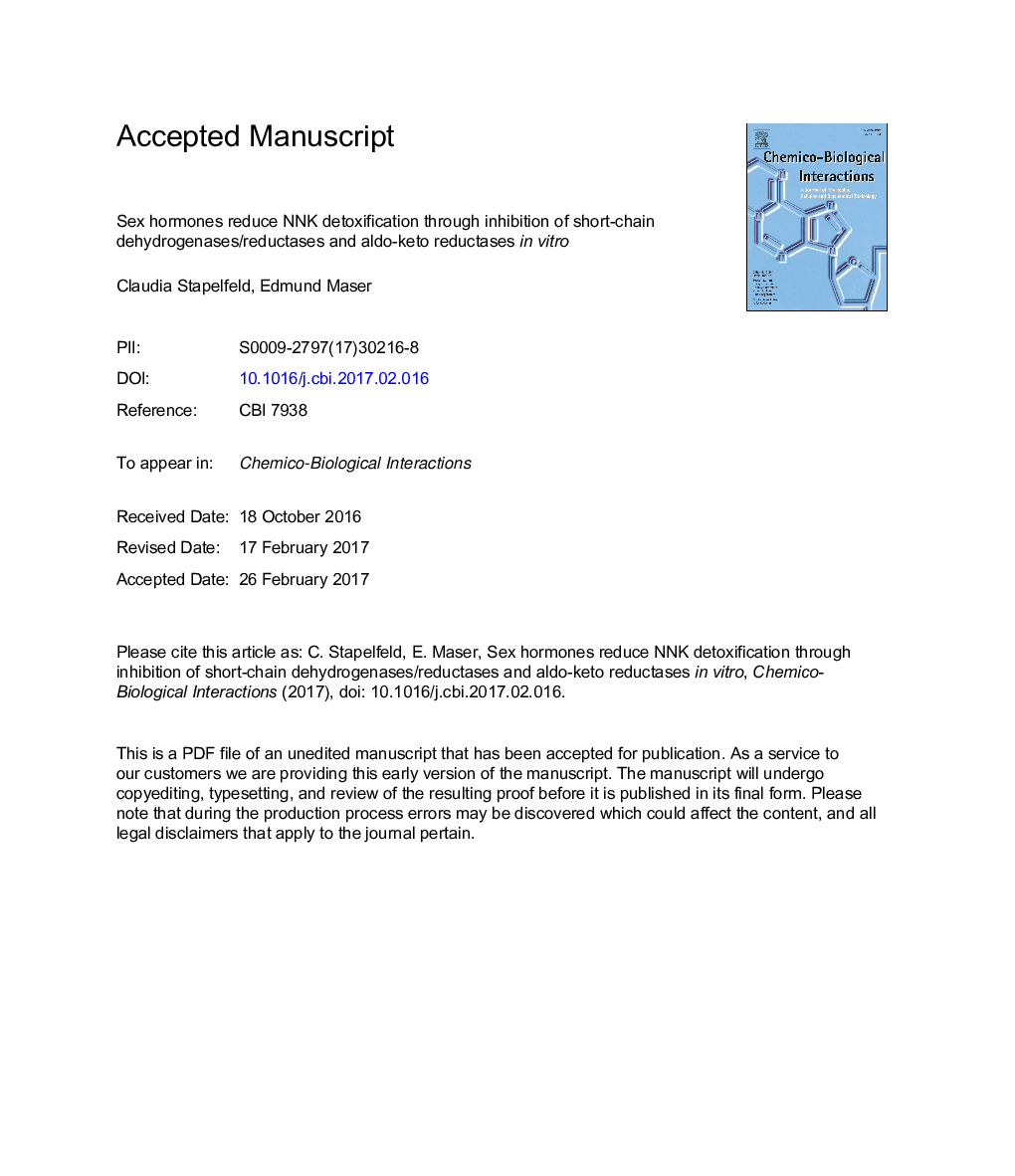| Article ID | Journal | Published Year | Pages | File Type |
|---|---|---|---|---|
| 8545603 | Chemico-Biological Interactions | 2017 | 29 Pages |
Abstract
Because some reductases are also involved in steroid metabolism, five different hormones were tested for their inhibitory effect on NNK carbonyl reduction. Two of those hormones were estrogens (estradiol and ethinylestradiol), another two hormones belong to the gestagen group (progesterone and drospirenone) and the last tested hormone was an androgen (testosterone). Furthermore, one of the estrogens (ethinylestradiol) and one of the gestagens (drospirenone) are synthetic hormones, used as hormonal contraceptives. Five of six NNK reducing enzymes (AKR1B10, AKR1C1, AKR1C2, AKR1C4 and 11β-HSD1) were significantly inhibited by the tested sex hormones. Only NNK reduction catalyzed by CBR1 was not significantly impaired. In the case of the other five reductases, gestagens had remarkably stronger inhibitory effects at a concentration of 25 μM (progesterone: 66-88% inhibition; drospirenone: 26-87% inhibition) in comparison to estrogens (estradiol: 17-51% inhibition; ethinylestradiol: 14-79% inhibition) and androgens (14-78% inhibition). Moreover, in most cases the synthetic hormones showed a greater ability to inhibit NNK reduction than the physiologic derivatives. These results demonstrate that male and female sex hormones have different inhibitory potentials, thus indicating that there is a varying detoxification capacity of NNK in men and women which could result in a different risk for developing lung cancer.
Keywords
Related Topics
Life Sciences
Environmental Science
Health, Toxicology and Mutagenesis
Authors
Claudia Stapelfeld, Edmund Maser,
